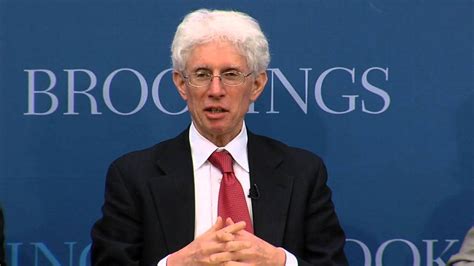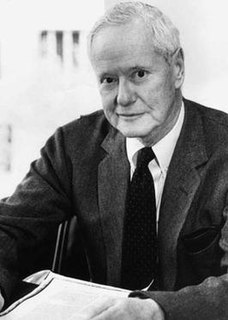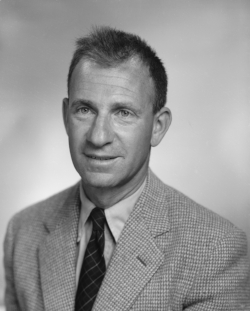A Quote by Arthur William Galston
In my view, the only recourse for a scientist concerned about the social consequences of his work is to remain involved with it to the end.
Related Quotes
Only when he has published his ideas and findings has the scientist made his contribution, and only when he has thus made it part of the public domain of scholarship can he truly lay claim to it as his own. For his claim resides only in the recognition accorded by peers in the social system of science through reference to his work.
Using any reasonable definition of a scientist, we can say that 80 to 90 percent of all the scientists that have ever lived are alive now. Alternatively, any young scientist, starting now and looking back at the end of his career upon a normal life span, will find that 80 to 90 percent of all scientific work achieved by the end of the period will have taken place before his very eyes, and that only 10 to 20 percent will antedate his experience.
It is only in his work that an artist can find reality and satisfaction, for the actual world is less intense than the world of his invention and consequently his life, without recourse to violent disorder, does not seem very substantial. The right condition for him is that in which his work in not only convenient but unavoidable.
The books of the great scientists are gathering dust on the shelves of learned libraries. And rightly so. The scientist addresses an infinitesimal audience of fellow composers. His message is not devoid of universality but its universality is disembodied and anonymous. While the artist's communication is linked forever with its original form, that of the scientist is modified, amplified, fused with the ideas and results of others and melts into the stream of knowledge and ideas which forms our culture. The scientist has in common with the artist only this: that he can find no better retreat from the world than his work and also no stronger link with the world than his work.
There are, of course, a number of epistemological questions, some of which lie more in the province of the philosopher than they do the economist or the social scientist. The one with which I am particularly concerned here is that of the role of knowledge in social systems, both as a product of the past and as a determinant of the future.
About Mike the construction worker, friend of Roark: "He worshipped expertness of any kind. He loved his work passionately and had no tolerance for anything save for other single-track devotions. He was a master in his own filed and felt no sympathy except for mastery. His view of the world was simple: there were the able and there were the incompetent; he was not concerned with the latter."
Reductionist ideology not only hinders biologists from thinking adequately about the phenomena we wish to understand: it has two important social consequences: it serves to relocate social problems to the individual rather than exploring the societal roots and determinants of a phenomenon; and second, it diverts attention and funding from the social to the molecular.

































